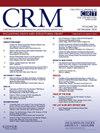探索冠状动脉微血管功能障碍与心理健康之间的相互作用
IF 1.6
Q3 CARDIAC & CARDIOVASCULAR SYSTEMS
引用次数: 0
摘要
本文章由计算机程序翻译,如有差异,请以英文原文为准。
Exploring the interplay between coronary microvascular dysfunction and mental health
Background
The intricate relationship between mental health disorders, notably anxiety and depression, and chest pain associated with non-obstructive coronary artery disease has become a focus of investigation.
Methods
This study from the Coronary Microvascular Disease Registry (CMDR) evaluated the association of mental health disorders and coronary microvascular dysfunction (CMD) among patients with angina with no obstructive coronary artery disease (ANOCA) who had undergone comprehensive invasive physiological testing for CMD. Clinical data regarding baseline characteristics, comorbidities, and noninvasive cardiac testing were obtained from chart review. The primary outcome of interest was the potential relationship between mental health diagnoses and the presence of CMD.
Results
Of patients included in the CMDR, 27 % (41/152) had at least one documented mental health disorder diagnosis (International Classification of Diseases, Tenth Revision codes) and CMD. There was no difference in mental health diagnosis prevalence between CMD-positive and CMD-negative patients (21.1 % vs. 28.9 %, p = 0.34). The most common mental health diagnoses were depression (15.8 %) and anxiety (15.8 %). Furthermore, 46.3 % (19/41) of patients with mental health disorders were prescribed psychiatric medications, with the most common being benzodiazepines (26.8 %).
Conclusion
Patients with chest pain not due to CMD did not have an increased prevalence of mental health disorders compared with patients with ANOCA due to CMD, challenging the notion of a psychosomatic component in the pathogenesis of ANOCA.
求助全文
通过发布文献求助,成功后即可免费获取论文全文。
去求助
来源期刊

Cardiovascular Revascularization Medicine
CARDIAC & CARDIOVASCULAR SYSTEMS-
CiteScore
3.30
自引率
5.90%
发文量
687
审稿时长
36 days
期刊介绍:
Cardiovascular Revascularization Medicine (CRM) is an international and multidisciplinary journal that publishes original laboratory and clinical investigations related to revascularization therapies in cardiovascular medicine. Cardiovascular Revascularization Medicine publishes articles related to preclinical work and molecular interventions, including angiogenesis, cell therapy, pharmacological interventions, restenosis management, and prevention, including experiments conducted in human subjects, in laboratory animals, and in vitro. Specific areas of interest include percutaneous angioplasty in coronary and peripheral arteries, intervention in structural heart disease, cardiovascular surgery, etc.
 求助内容:
求助内容: 应助结果提醒方式:
应助结果提醒方式:


